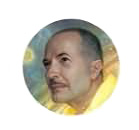Reading biographies always makes me nostalgic, and I am going to be out of town for the first couple of days of this discussion, so I thought I’d just get the nostalgia out of my system in one fell ignorable swoop, rather than attempting to be profound while wondering where the insect repellent is and why I still don’t have my own suitcase.
I first read Heinlein when I was very young. I don’t remember my first Heinlein novel as I remember my first Norton, but since the reverberations of “Wow, I sure was a naïve kid” seem strongest when I reread Red Planet, it may have been that one. I remember wishing there was more about Jim’s sister Phyllis in that book. She seemed just as interesting as Jim. I liked Meade in The Rolling Stones too, but I didn’t want to be her because she seemed to be saddled with an inordinate amount of babysitting and cooking. I adored Hazel Meade Stone, but I didn’t think I could be like her, because she was an engineer, though she’d quit being one because she had hit the glass ceiling and got fed up.
It took me some ways into Podkayne of Mars to even understand that Podkayne was female. Honesty compels me to confess that I used to read very fast, and that I spent some few chapters of The Lord of the Rings fondly believing that Merry was a girl, and was very disappointed when I finally noticed the male pronoun. But I don’t think it was all me, with Poddy. She was significantly more alien to me than any of the young men in Heinlein. At the time this seemed natural to me. She was a teenaged girl, a state I viewed as all too likely to deprive me of my wits. I made, when I was ten or eleven, a list of things I had vowed never to do, to keep my teenaged self in line, or at least avert what I conceived might be the worst disasters. Hazel had clearly been a witless teenager, though she seemed to have gotten over it all right. But at the age when I first read The Rolling Stones, I couldn’t really conceive of anybody being 90 years old. I liked reading about a witless teenage girl who wanted to be a spaceship pilot, though. When she started going on about babies, I just rolled my eyes.
Just as I could tell you about my first Andre Norton novel or my first L’Engle or my first Asimov, I could write a paragraph about how each of these writers influenced me, my writing and my thoughts, and do to this day. It’s much slipperier with Heinlein. What particularly attached me to him was the voice of his narratives. I was sure, even early on in my reading, that he wasn’t actually talking to me. I didn’t belong in his worlds. Though as an adult this quality sometimes made me want to pull out my hair, as a child I found it delicious. I was eavesdropping on secrets that I wasn’t meant to know: as a girl, the wrong kind of girl, bad at mathematics, repulsed by babies, dubious of marriage, almost, at times, a Luddite. I was getting all the secrets of a universe I would never enter, a universe more fantastical than that of Tolkien, Lovecraft, Austen, and Carroll put together. There was an inexplicable joy in this that was hugely addictive.
I still got faint intimations and occasional strong flashes of that feeling when last I reread Heinlein, a year or two ago. However, reading the new biography has broken the spell. Here, missing many of the lovely bits—the Moon colonies, wings for flight in low gravity, the interplanetary spaceships, the Martians and Venerians, the innovative family structures, the pocket phones and rolling roads and sentient computers and asteroid miners—is that fantastical universe. It’s the part that Heinlein did not invent himself, although he colored his corner of it brightly; one of the more fantastical universes available to us, the past.
Earlier biographies did not break the spell. But Patterson’s is full of inexorable detail, adding verisimilitude to, well, you know the rest. Rereading Heinlein in its light, or possibly its shadow, is interesting.
I hope to have a more coherent report before the end of the week. I still like the Moon colonies and the Martians, and I still like the dialogue, as stylized as a Greek chorus but with completely different roots; I still like the narrative voice, too, but it’s no longer sealed away. I know this process didn’t take as long for many of you, but this is how long it took for me.
So far, I can say that I’m dubious about the past, but I still like the tomorrow. It’s hard sometimes to tell which is which.
Pamela Dean is the author of Tam Lin, the Secret Country trilogy, and several other works of fantasy. She was a founding member of the Scribblies, the self-organized writers’ workshop that also included Steven Brust, Emma Bull, Will Shetterly, Kara Dalkey, and Patricia C. Wrede. She lives in Minneapolis, Minnesota.










